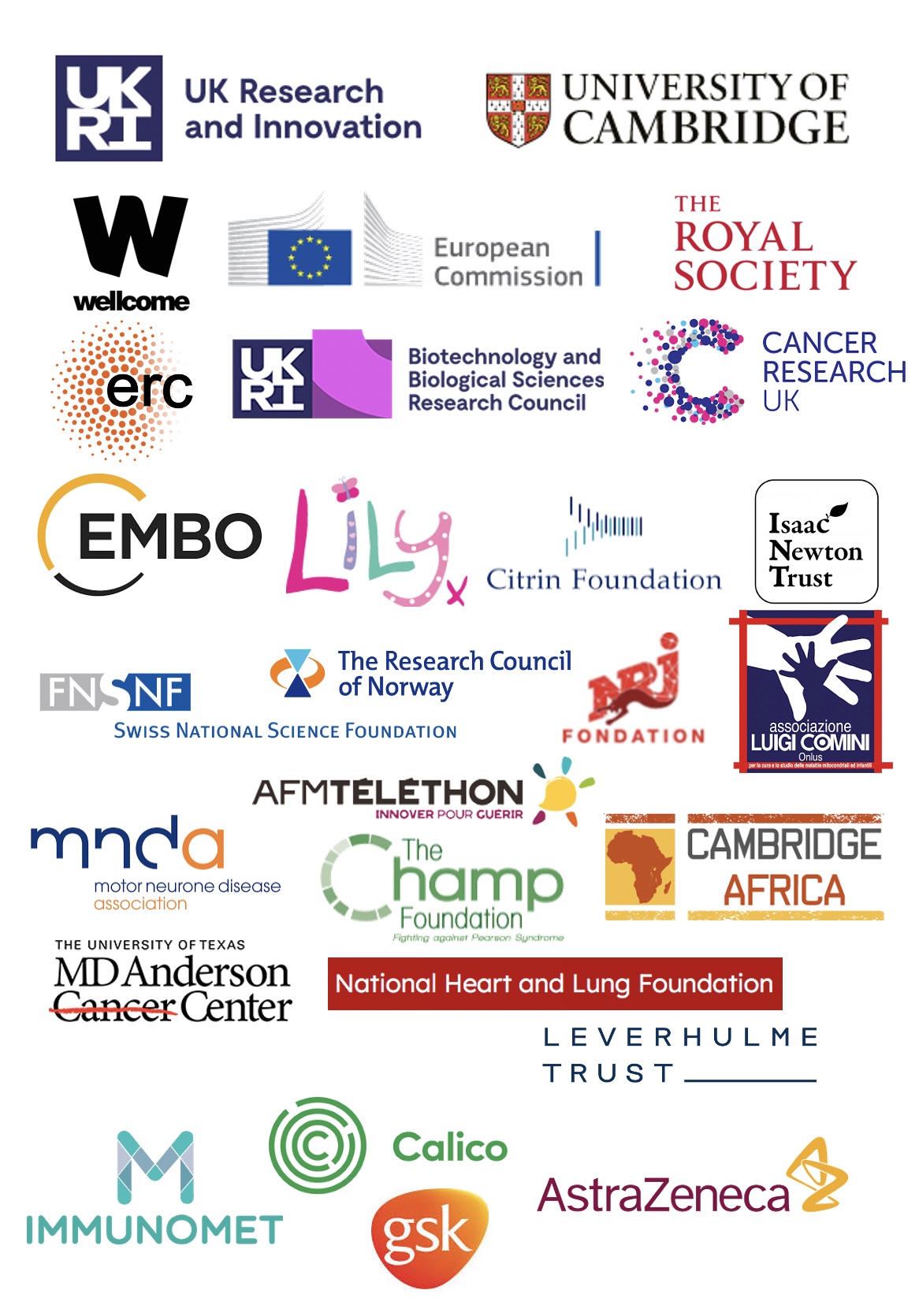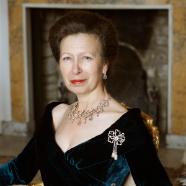Information about the history of the MRC MBU, our Patron, and the Annual Sir John Walker Lectures.
History of the MBU
The MRC Mitochondrial Biology Unit (MBU) was founded in its present form in 2009, under the Directorship of Professor Sir John Walker FRS - but the MBU's antecedents go back for more than a century.
Until 2009, the Unit carried the name of Sir William Dunn, a Scot who, upon his death in 1912, left £1 million to charity. The trustees of Sir William's bequest were persuaded by the then Secretary of the Royal Society, Sir William Hardy, and Secretary of the MRC, Sir Walter Fletcher, to support the new discipline of biochemistry, and particularly the leading figure in this country, Sir Frederick Gowland-Hopkins, in Cambridge. The result was the construction of the Biochemistry Department in Tennis Court Road and the endowment of a Professorship and Readership in Biochemistry in Cambridge University. Gifts were also made to various other institutions, particularly the Sir William Dunn School of Pathology in Oxford. The final £6,000 was used to build the Dunn Nutritional Laboratory in Cambridge, which opened in 1927, with its research supported by the MRC.
Scientists at the Dunn made many seminal contributions to nutrition research. In the early years, important work was carried out on vitamin research, particularly on vitamins A, D, E and C. Together with the teams of Robert McCance and Elsie Widdowson, the Dunn formed a centre of nutrional expertise in Cambridge. McCance and Widdowson (who joined the Unit in 1966) revolutionised the assessment of nutritional values and dietary deficiencies, including nutritional challenges during the Second World War. Amongst many other accolades, Widdowson was recently listed by the Royal Society as one of the ten most influential women in British science history. The directorship of Egon Kodicek concluded the Dunn’s era of vitamin research and was suceeded in 1973 by that of Roger Whitehead, who led the Dunn forward to new applied areas of research, including epidemiological and clinical investigations relating to malnutrition in the third world.
In 1998, Professor Sir John Walker FRS, Nobel Laureate in Chemistry, was appointed Director of the Dunn. The following year, the Unit moved to laboratories in the newly constructed Wellcome Trust/MRC Building, now named the Keith Peters Building, which we continue to share with the Cambridge Institute for Medical Research. In 2009, recognising the Unit's focus on mitochondria, our world-wide reputation in mitochondrial research, and growing evidence of widespread mitochondrial involvement in human disease, the Unit was renamed the MRC Mitochondrial Biology Unit. In 2013, Sir John stepped down as Director, and was succeeded by Massimo Zeviani. In 2017 the Unit became a department of Cambridge University, and in 2019 Massimo stepped down to take up a Professorship at the University of Padova. Having been appointed Interim Director in April 2019, and following a competitive international search, Professor Judy Hirst was appointed as the MBU's Director on 1 December 2020.
Funding
Patronage
Her Royal Highness The Princess Royal
The Princess Royal's association with the Unit began in 1990 when Her Royal Highness became Patron of the Dunn Nutrition Unit, and we were delighted when she agreed to extend her Patronage to the MRC Mitochondrial Biology Unit. Her Royal Highness has continued to take a keen interest in our work and our development as the Unit’s interests and focus have evolved, and the Director and all the members of the Unit very much appreciate her on-going support and committment.
The Annual Sir John Walker Lecture Series
The MBU's Annual Lecture, initiated in 2003, was first known as The Sir William Dunn Lecture, in memory of the Unit's founding benefactor. In 2009, the Unit was re-named the MRC Mitochondrial Biology Unit and, in 2013, the Lecture series was re-named The Sir John Walker Lecture to celebrate his vision and leadership of the development and growth of the Unit in mitochondrial research during his Directorship.
Annual Sir John Walker Lecturers
2026 Nils-Göran Larsson (Karolinska Institutet, Stockholm, Sweden)
(26 March)
2024 Anu Suomalainen (University of Helsinki, Finland)
‘New mitochondrial mechanisms of degenerative diseases’ (3 December)
2022 Nikolaus Pfanner (University of Freiburg, Germany)
‘Mitochondrial machineries for import and assembly of proteins’ (1 December)
2019 David Sabatini (Harvard University, USA)
‘Regulation of Growth and Metabolism by the mTOR Pathway’
2018 Vamsi Mootha (MIT and Harvard University, USA)
‘Genomics Approaches to Mitochondrial Physiology and Disease’
2017 Rosario Rizzuto (University of Padova, Italy)
‘The Molecular Calcium Reporter: Molecular Identity and Physiological Role’
2016 Sir Venki Ramakrishnan (University of Cambridge, UK)
‘Using Electron Microscopy to Study Mitochondrial Ribosomes’
2015 Sir Stephen O’Rahilly (University of Cambridge, UK)
‘Human Obesity: Causes and Consequences’
2014 Nick Lane (University College, London, UK)
‘Bioenergetic Constraints on the Evolution of Cells’
2013 Douglas Wallace (University of Pennsylvania, Philadelphia, USA)
‘A Mitochondrial Etiology of Metabolic and Degenerative Diseases, Cancer and Aging’
The Sir William Dunn Lecturers
2012 Cancelled following the death of Gottfried Schatz (University of Basel, Switzerland)
2011 Jeff Errington (Newcastle University, UK)
‘L-form Bacteria, Mitochondria, and the Origins of Cellular Life’
2010 Gerard Evan (University of Cambridge, UK)
‘Modelling New Strategies to Treat Cancer’
2009 Jodi Nunnari (University of California, Davis, USA)
‘The Machines that Divide and Fuse Mitochondria’
2008 Bruce Spiegelman (Dana-Farber Cancer Institute and Harvard Medical School, USA)
‘Transcriptional Basis of Energy Homeostasis in Health and Disease’
2007 David Nicholls (Buck Institute for Age Research, Novato, USA)
‘Mitochondria in the Life and Death of the Brain’
2006 Michael Yaffe (University of California at San Diego, USA)
‘Mechanisms of Mitochondrial Distribution and Inheritance’
2005 Cancelled following the death of Stanley Korsmeyer (Harvard University, USA)
2004 Douglas Wallace (University of California, Irvine, USA)
‘Ancient Origins-Modern Diseases: A Mitochondrial Connection’
2003 Bruce Ames (University of California at Berkeley, USA)
‘A Metabolic Tune-up to Optimize Health’



